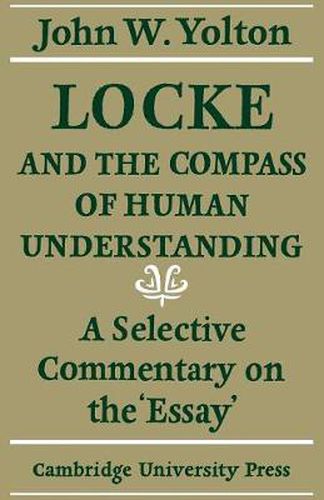Readings Newsletter
Become a Readings Member to make your shopping experience even easier.
Sign in or sign up for free!
You’re not far away from qualifying for FREE standard shipping within Australia
You’ve qualified for FREE standard shipping within Australia
The cart is loading…






The Essay Concerning Human Understanding is John Locke’s most important work, and through this selective commentary, first published in 1970, Professor Yolton concentrates our attention on the more interesting and controversial of the doctrines in it. His method of interpretation is to ask very specific questions of the text in order to test the propriety of the philosophical labels traditionally applied to Locke, an approach which he believes yields surprising results. He looks afresh at the various discussions of essence, perception, scientific method, ethics and meaning, and argues that throughout his epistemology Locke is more concerned with problems of description and analysis than with those of justification. This historical perspective is extended by the discussion of issues in the Essay, which retain an independent and philosophical interest.
$9.00 standard shipping within Australia
FREE standard shipping within Australia for orders over $100.00
Express & International shipping calculated at checkout
The Essay Concerning Human Understanding is John Locke’s most important work, and through this selective commentary, first published in 1970, Professor Yolton concentrates our attention on the more interesting and controversial of the doctrines in it. His method of interpretation is to ask very specific questions of the text in order to test the propriety of the philosophical labels traditionally applied to Locke, an approach which he believes yields surprising results. He looks afresh at the various discussions of essence, perception, scientific method, ethics and meaning, and argues that throughout his epistemology Locke is more concerned with problems of description and analysis than with those of justification. This historical perspective is extended by the discussion of issues in the Essay, which retain an independent and philosophical interest.